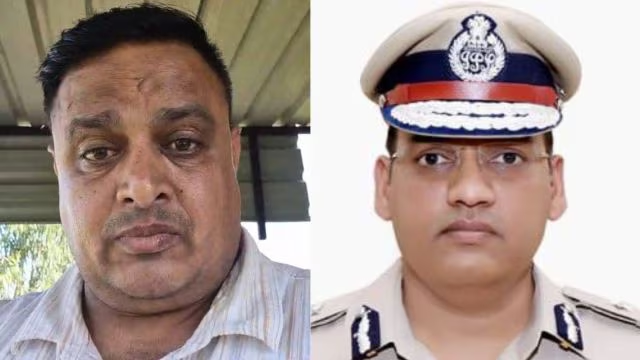Listen To This Post
Chandigarh: An Assistant Sub-Inspector (ASI) of Haryana Police, posted in Rohtak, allegedly died by suicide on Tuesday, leaving behind a three-page note and a six-minute video in which he reportedly levelled allegations of corruption against late IPS officer Y Puran Kumar.
According to the police, the deceased, ASI Sandeep Kumar, was attached to the Cyber Cell of Rohtak Police. “Yes, he [Sandeep Kumar] is no more. Prima facie, it appears to be a case of suicide. We are investigating the matter and gathering more details,” said a senior Haryana Police officer.
In his purported video and note, which have surfaced on social media, Sandeep Kumar is learnt to have made several claims relating to the financial dealings of the late IPS officer and his associates. He also reportedly urged that “a probe be conducted into the assets of Y Puran Kumar and his family members.”
A police officer familiar with the investigation said Sandeep Kumar had played a key role in the arrest of Head Constable Sushil Kumar, who identified himself as the personal security officer (PSO) of the late IPS officer. Sushil was arrested on October 6, just a day before Y Puran Kumar was found dead with a gunshot wound at his residence in Chandigarh’s Sector 11.
Sources said Sandeep’s death and his recorded statement could add a fresh twist to the ongoing controversy surrounding the death of the senior IPS officer, whose family has alleged caste-based discrimination and harassment by senior officials. The case has already triggered a political storm in Haryana, drawing responses from opposition leaders and Dalit organisations demanding a court-monitored probe.
Meanwhile, Rohtak Police said the contents of Sandeep Kumar’s note and video are being verified for authenticity. “We have recovered certain documents and digital evidence. Forensic and cyber experts will examine all materials before any conclusion is drawn,” said a police official. The body of the ASI was sent for post-mortem, and further investigation is underway.
A Disturbing Turn: The Counter-Allegation Narrative
Even as the family of IPS officer Y. Puran Kumar continues to demand justice, alleging caste-based harassment and institutional bias, the case has now taken a disturbing new turn. On Tuesday, Assistant Sub-Inspector (ASI) Sandeep Kumar, posted in the Cyber Cell of Rohtak, was found dead in an apparent suicide. He left behind a three-page note and a six-minute video in which he levelled allegations of corruption against the late officer and demanded an investigation into the assets of Kumar and his family members.
Sandeep had recently played a key role in the arrest of Head Constable Sushil Kumar, who identified himself as Puran Kumar’s personal security officer. Sushil was arrested on October 6, just a day before the senior officer was found dead in his Chandigarh residence. The sequence of events and the timing of Sandeep’s suicide have now added another layer of complexity to a case already fraught with caste, administrative, and political tensions.
The Rohtak Police has said the note and video are being examined for authenticity and forensic verification. However, this development has set off a parallel narrative, one that often emerges in cases involving members of marginalised communities who allege institutional discrimination. Historically, such counter-allegations tend to shift the discourse from systemic accountability to personal conduct, muddying the waters of public perception.
It is important to note that such counter-narratives are not uncommon in high-profile cases involving Dalit officers or whistleblowers. They often appear at crucial junctures — when pressure builds for independent investigations or when institutional complicity begins to surface. The risk here is that the focus moves away from the structural questions of caste, representation, and equality in the police hierarchy, toward selective charges that can erode public empathy and slow the demand for justice.
The death of ASI Sandeep Kumar, therefore, must not be viewed in isolation. While his allegations deserve to be probed with the same seriousness as any other, they cannot be used to dilute or delegitimise the grave questions raised by Y. Puran Kumar’s death — questions about how caste continues to shape the lived realities of Dalit officers even within the country’s most powerful administrative structures. Justice, in this case, demands not only a forensic truth about who drove whom to despair, but also a moral reckoning with how caste prejudice operates behind the veneer of official discipline and hierarchy.















